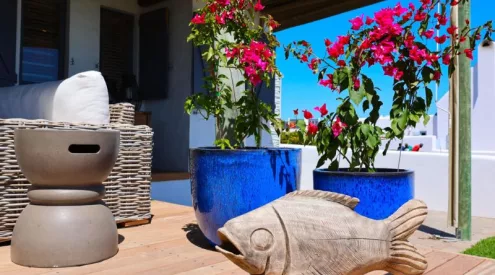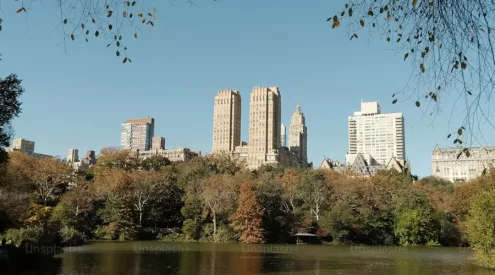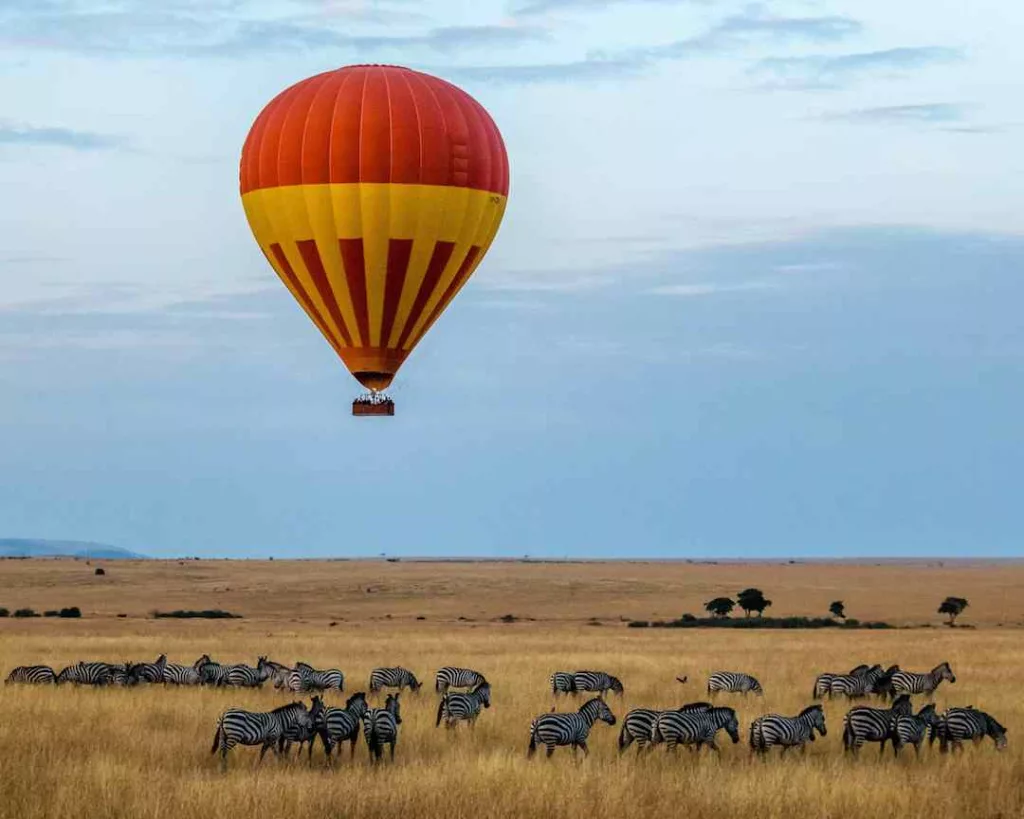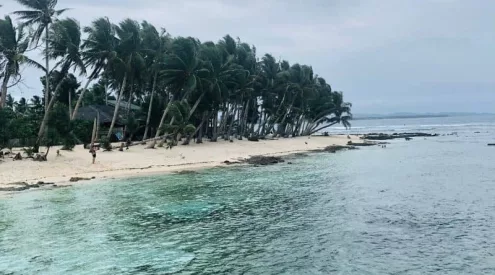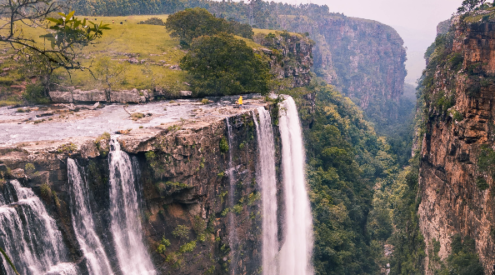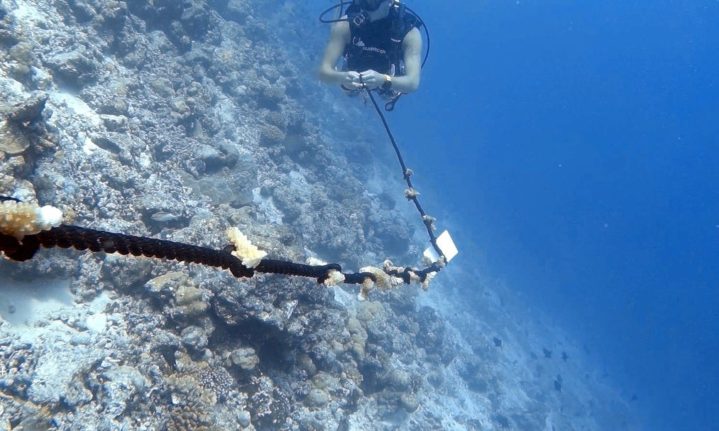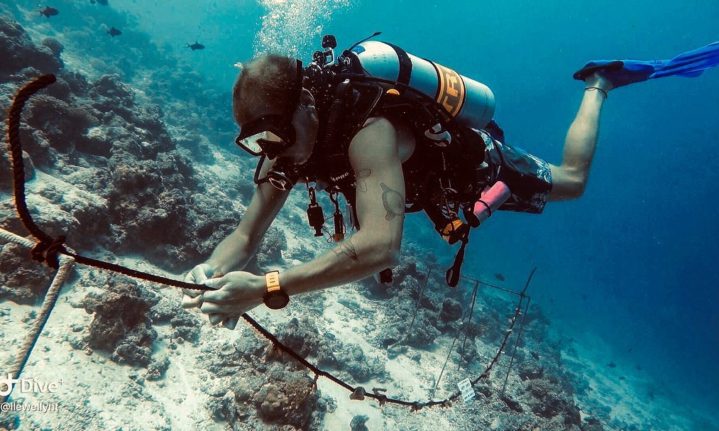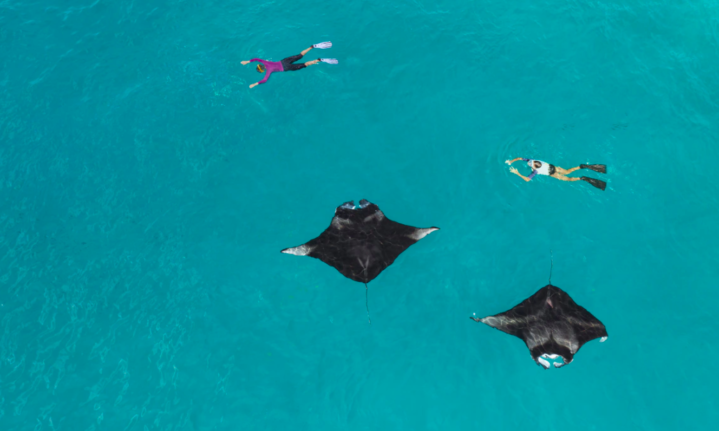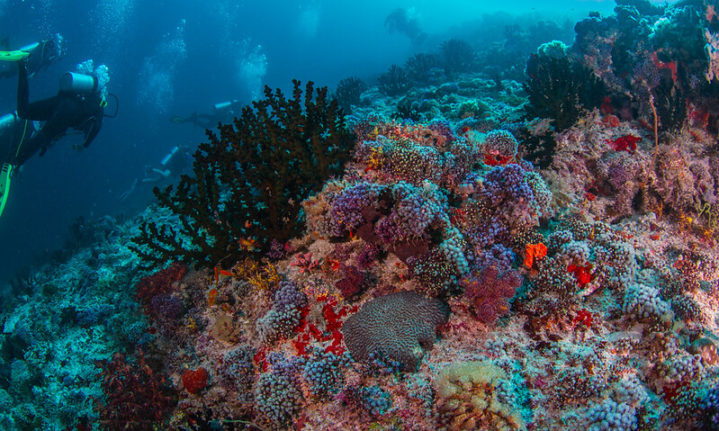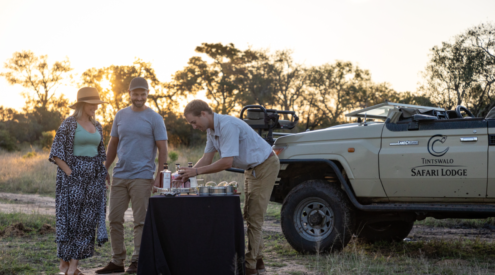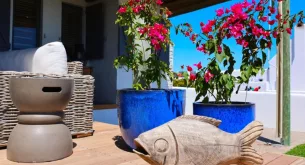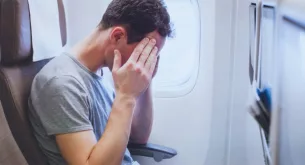A massive 60% of hard corals in the Maldives bleached and died in 2016. This was after they managed to recover from an earlier bleaching event in 1998, in which more than 90% of hard corals died, according to a study by the University of Genoa in Italy, published in the journal Frontiers In Marine Sciences.
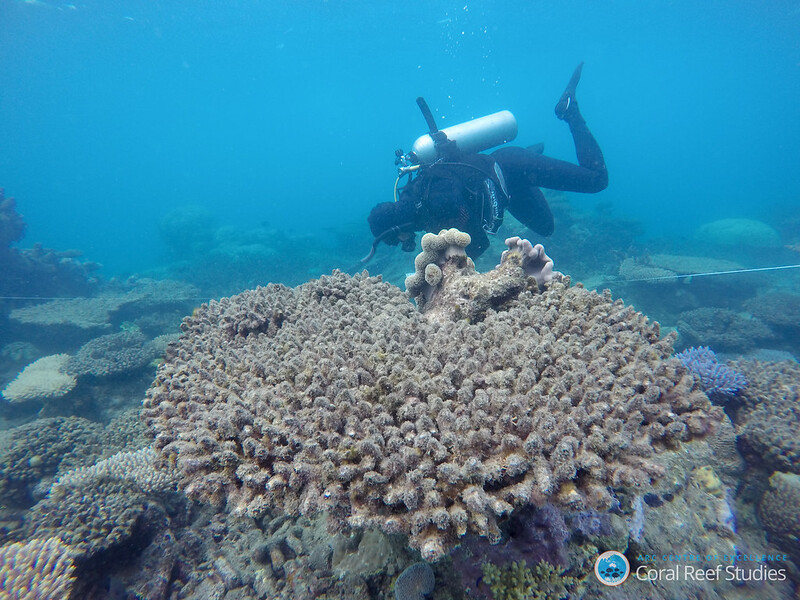
Like the term suggests, beached coral loses its colour when it becomes vulnerable after expelling its main food source. Picture: Andreas Dietzel/Flickr Commons
‘The Maldives are experiencing a still moderate but nevertheless continuously increasing level of human pressure because of population increase, coastal development, and tourism intensification,’ the article reads. ‘In addition, starting from 2016, the atolls of North and South Malé have been subject to important land reclamation engineering works with consequent increase of sediments in the lagoons.’
What is coral bleaching?
Corals have a symbiotic relationship with algae (zooxanthellae) living in them, which provides them with most of their nutrients. If corals experience changes in conditions – including water temperature, light and pollution – they can become stressed, losing this algae. Without it, the corals struggle to meet their energy requirements.
Tropical reefs are, of course, known for their vibrant colours, impossibly bright and beautiful under the sea. But, if you’ve ever come across a white coral reef with no fish or other critters in sight, it’s safe to say it has possibly bleached.
Corals can survive bleaching, but it leads to malnutrition which makes them vulnerable and could lead to death in the case of prolonged exposure.
Okay, the bad news is out the way. There is some very good news too!
A resort with a plan
The Westin Maldives Miriandhoo Resort in the Maldives has recently launched a reef restoration project to grow new corals – and keeps a close eye on them to ensure their health and growth. The team at AQUA, the watersports centre at the resort, leads this exciting project.
The project will be one of the biggest of its kind in the Baa Atoll [an atoll is a ring-shaped coral reef island that encircles ocean or a lagoon]. It is specific to the local reef topography and will focus on restoring the reefs from top to bottom. Trial nurseries have been set up to see if this method will be successful in this environment and the team hopes the project will be in full swing in the next few months, based on the trial results. These nurseries are all at The Westin Maldives Miriandhoo Resort.
The nurseries will help to propagate healthy coral colonies, which will be transplanted back onto the reefs, with the ultimate goal to restore reef health, coral and genetic biodiversity. Not only is this important to the health of the reefs but to the surrounding marine environment as well.
Corals also do get damaged by construction, such as the building of resorts, and so the resort sees it as its duty to compensate for the possible stress caused by the structures people use or visit.
Marine biologist Llewellyn Tossel answered some questions on coral reefs below, and shared how every one of us can play a role in the protection of the world’s precious marine life.

Picture: Tchami/Flickr Commons
How do reefs affect the ocean, and why is it important to protect them?
Reefs offer protection to the land by buffering the impact of large waves in bad weather, preventing erosion on the coastline. They also offer a home to other species, as 25% of all marine life has its habitat in reefs. Many juvenile fish grow up using the protection of reefs before going into deep water. They also contribute to producing oxygen – we get roughly 70% of our oxygen on Earth from our oceans.
What are the main causes of bleaching and other factors that contribute to it?
The biggest cause is climate change, which causes warmer ocean currents. A change in temperature of as little as 2 degrees Celsius can have corals drive out this symbiotic algae. Pollution and water acidity changing also play a big role.
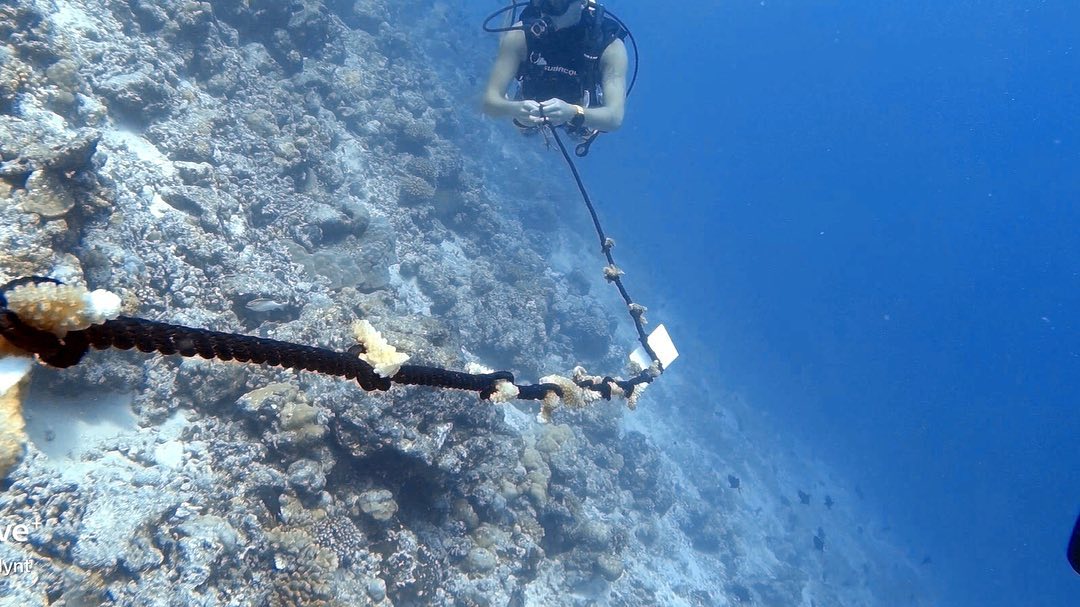
Picture: Llewellyn Tossel
How can holidayers contribute to the health of the ocean, or at the very least minimise their impact?
We should all be more conscious about the consumables we use every day, like sunblock or other lotions we use before swimming. It might not be biodegradable and reef safe, and will then contribute to pollution as most of these products contain chemicals extremely harmful to all marine life. Visitors should also remember not to step or walk on reefs, which can cause serious damage to fragile coral structures. Know your environment, find out more about the area you are visiting and what you can do and shouldn’t do to contribute to its conservation and preservation.
We should all try to offset our own carbon footprint. For example, plant a tree for every flight you take and try using locally produced or sourced products to save on the “carbon cost” of getting these products to you.
What is your favourite part about diving in the Maldives?
The manta rays! They are a huge highlight for me. I saw them for the first time ever here in the Maldives. I have been to many islands across the world, but the marine biodiversity in the Maldives remains unique. It is simply spectacular in all ways imaginable.

Picture: Llewellyn Tossel
The Maldives is open!
Planning to visit the magical Maldives? The Westin Maldives Mirandhoo Resort is the epitome of luxury, with a comfortable and relaxed atmosphere. The never-ending blue-ness envelops you wherever you go, offering myriad snorkelling, swimming and boating opportunities. In fact, Baa Atoll is a Unesco Biosphere Reserve, home to one of the largest concentrations of manta rays and whale sharks in the world.
The resort also offers a big variety of dives, ranging from reef dives to manta dives to night dives and drift dives. It caters to divers with no experience to more advanced divers, so there really is something for every kind of underwater explorer.
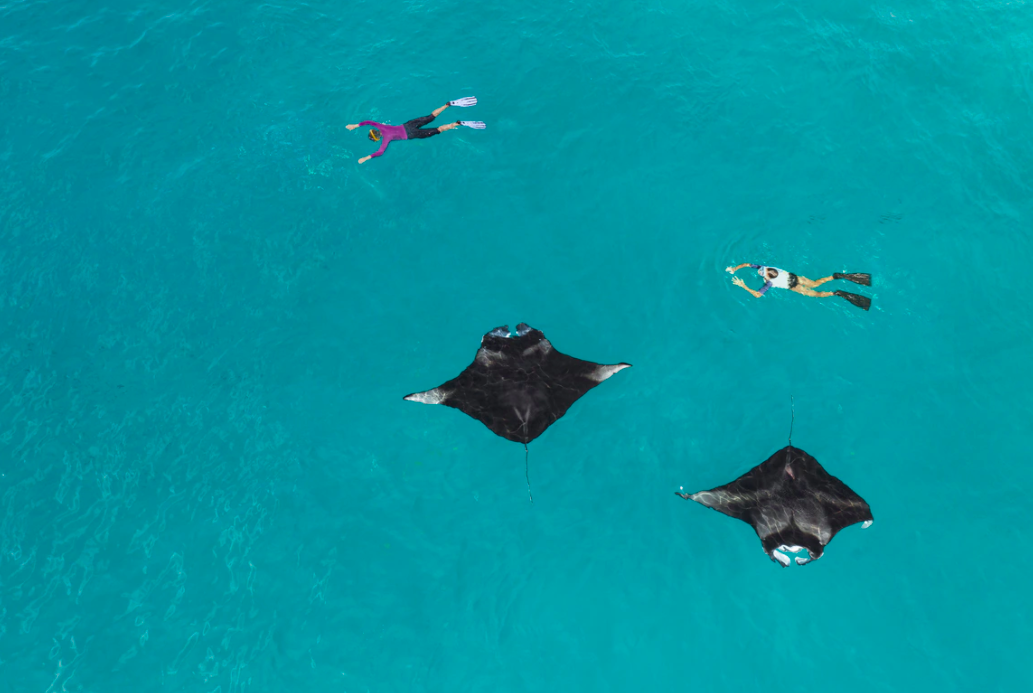
For those more inclined to eat, drink and be merry, the food is out of this world. Known for its tuna, the country offers just about any dish or drink you could conjure up in your imagination. Cuisines range from Japanese with a seafood focus at The Pearl to healthy, international dishes and all-day dining at Island Kitchen. The colourful bar and restaurant Hawker offers authentic Asian street food in a vibrant marketplace setting and for those who want to relax, tapas and ocean views at Sunset Bar provide a perfect end to the day.
The villas are all exquisite, whether you choose the beach or overwater villas. Each villa has its own private pool, from which to step right into the ocean from your deck!



Villas start from R13,000 per night per villa, which includes breakfast.
For more information, visit the resort’s website here, or call +960 -660 4444.
ALSO READ

